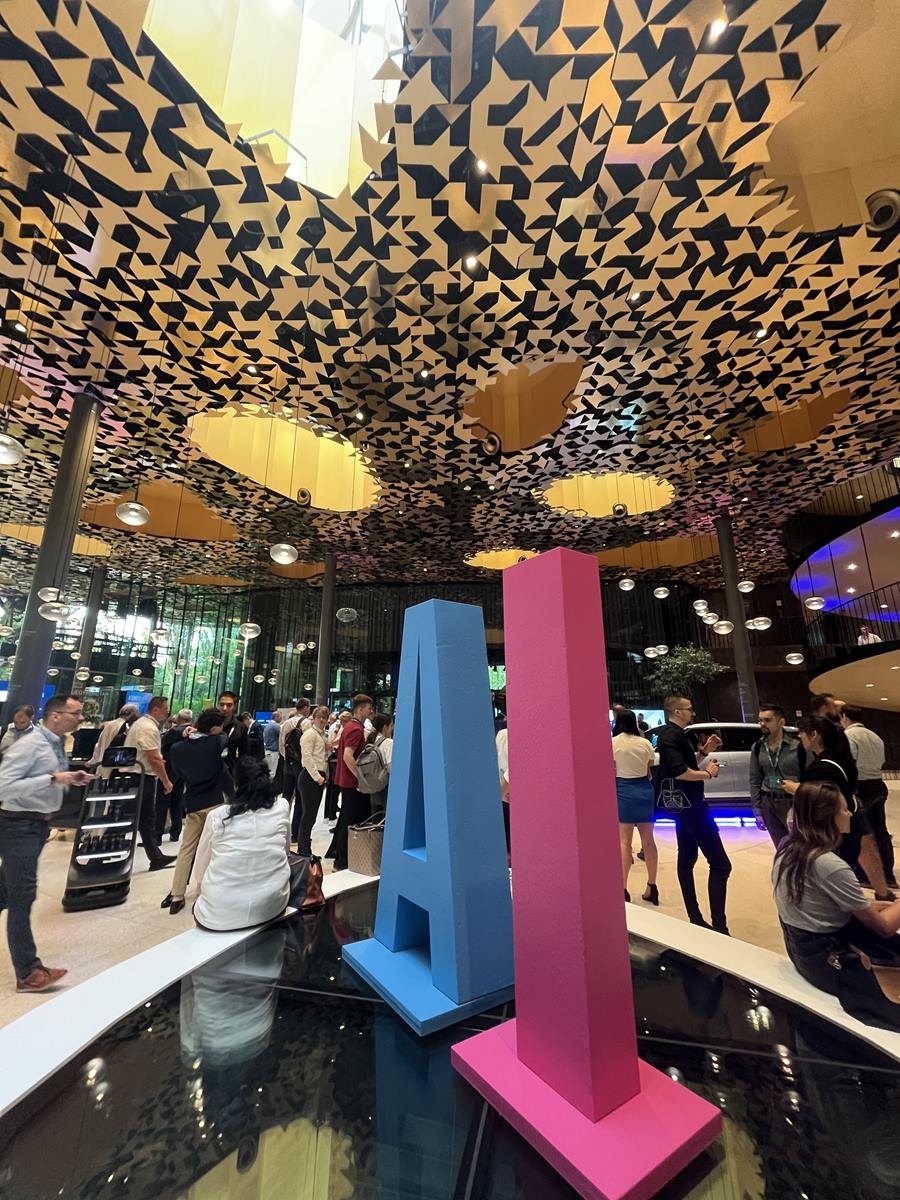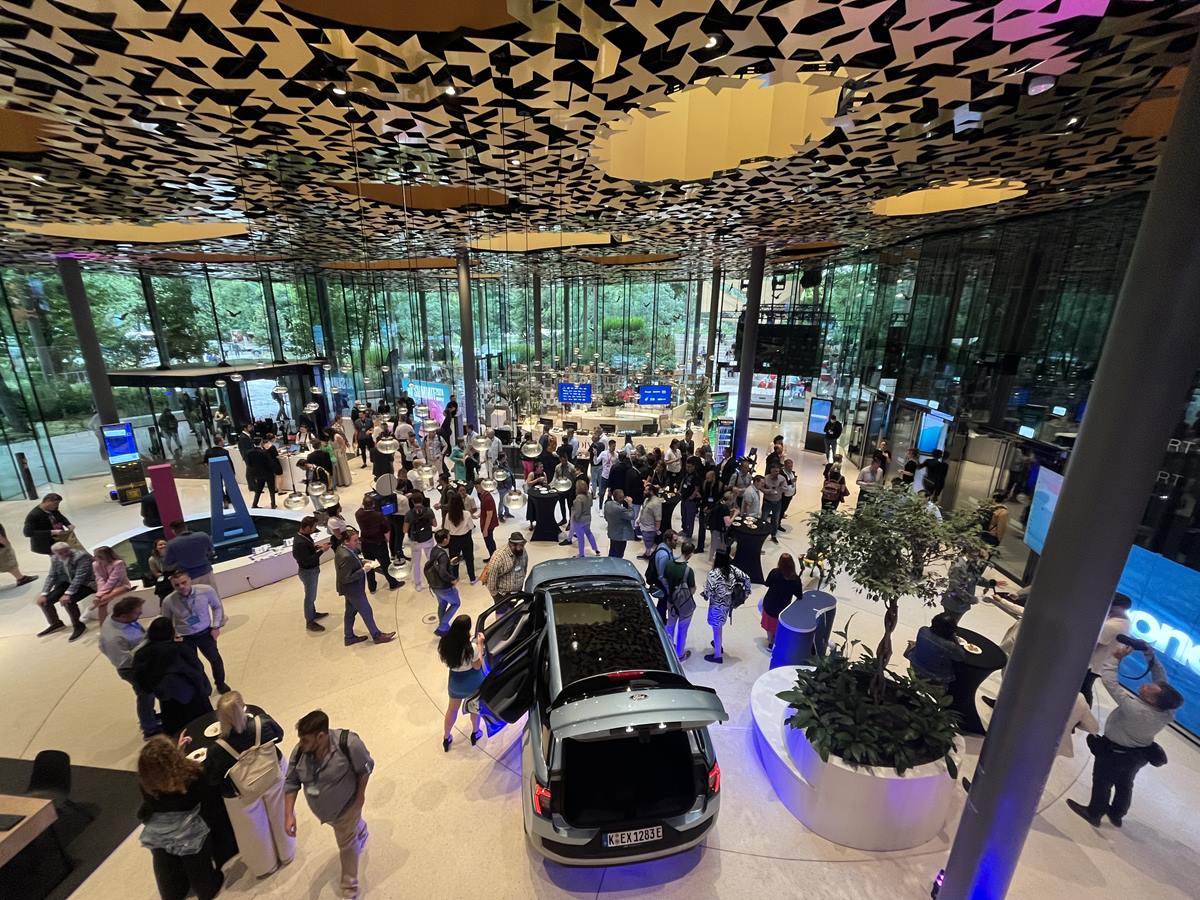The Budapest AI Summit 2024 took place on 9-10 September at the Hungarian House of Music and the Museum of Ethnography, as well as in their immediate surroundings. As the largest AI event in Central Europe, it brought together hundreds of experts, business leaders and researchers to share their views on the future of artificial intelligence. Key topics included the role of AI in healthcare, the transformation of creative industries and opportunities within the business sector. Special attention was paid to the European AI Act and its potential impact on various sectors.
Budapest AI Summit: Opening Speech
Tibor Navracsics, Minister of Public Administration and Regional Development, opened the Budapest AI Summit 2024 Navracsics gave a presentation highlighting existing AI practices in Hungary. He cited examples in the tax authorities (NAV), the health sector and development policy decision-making, where AI already plays an important role. The Hungarian Tourism Agency (MTÜ) is also using AI for data-driven developments in tourism. Navracsics also noted that the Southern Transdanubia Model Program is being developed to use AI for decision-making based on trends identified and diagnostics established through the program design.
The second day began with a speech by Kristóf Szalay-Bobrovniczky, Minister of Defence, who stressed that AI is an essential tool for the armed forces, especially in the field of reconnaissance. He stressed that AI is also crucial for data processing and assessing the geographical terrain. Szalay-Bobrovniczky stressed that AI can suggest the most effective course of action in complex combat situations and that digital tools are increasingly integrated into logistics.
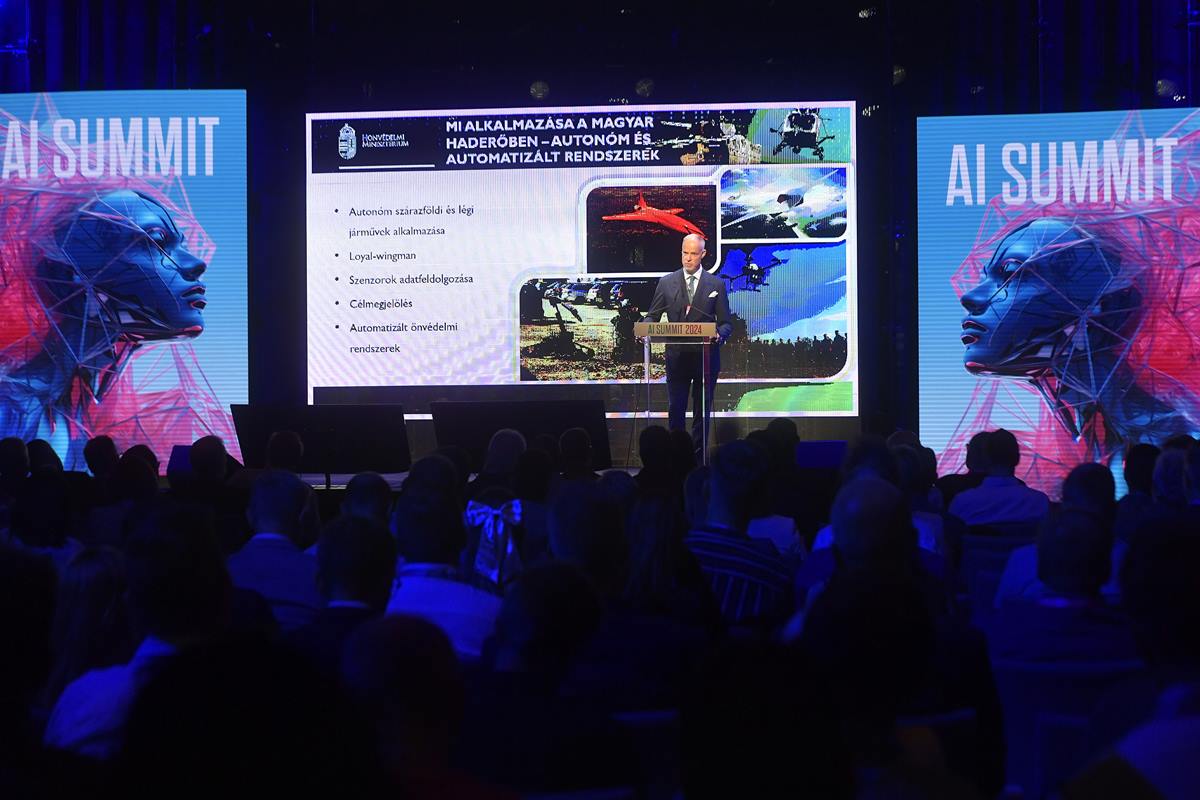
Source: Budapest AI Summit
Speakers, presentations
Tickets for the conference, organized by publisher Indamedia, sold out just days before the event, with nearly 3,000 people attending over the two days.
Five stages and 213 speakers on the AI Campus allowed you to discover the trends and latest developments in AI.
The summit brought together leading figures such as Dr. György Tilesch, an internationally recognized expert on AI strategy and ethics, and Péter Szabó, Managing Director of Microsoft Hungary. The conference focused on the practical applications of AI as well as ethical considerations, including its impact on the labor market and public services.
-
Artificial Intelligence Summit in Budapest 2024. Photo: Daily News Hungary
-
Artificial Intelligence Summit in Budapest 2024. Photo: Daily News Hungary
Several speakers from the creative industries highlighted that a deeper understanding of AI and its integration into workflows can help businesses become more efficient by automating monotonous tasks.
Some artists have excelled at AI-powered creations, and a panel of marketers unanimously agreed that companies that follow current trends are embracing AI, while those that don’t risk falling behind.
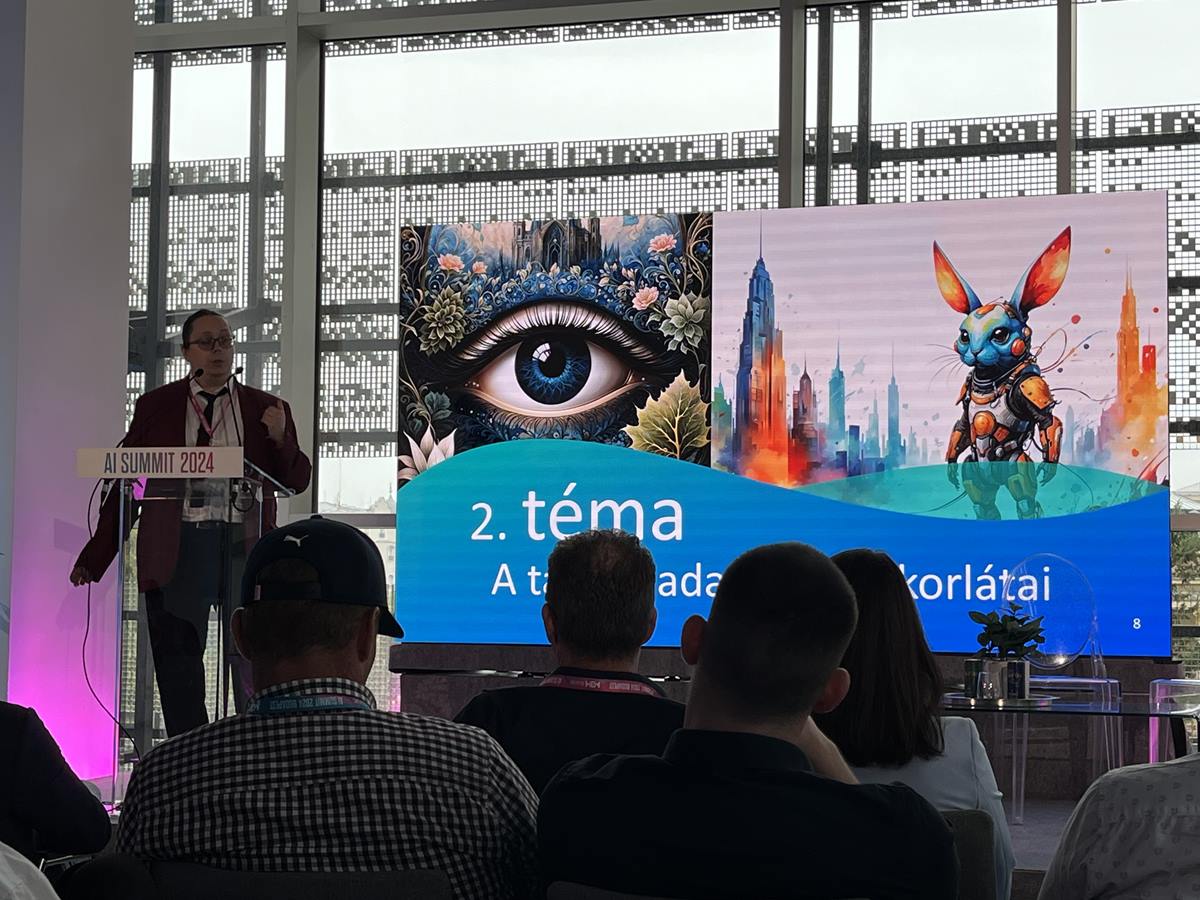
Péter W. Szabó, founding owner of Tenrg ai. Photo: Daily News Hungary
AI-based imaging was another major topic, as this sector has seen significant development in recent years. Péter W. Szabó, founding owner of Tenrg ai, a leading Hungarian imaging company, spoke about the present and future of image generation. He pointed out that in a short period of time, the number of users has grown from a few thousand to 300,000, which shows a strong interest in these technologies.
Several presentations also addressed AI fears. Again, speakers generally agreed that while the full impact of AI remains uncertain, it is not something to fear but rather something to learn and exploit. As Balázs Sólyom, Head of Data at Trendency Online Ltd., put it so well:
“It’s not the AI taking your job; it’s the human using the AI taking the non-AI user’s job.”
AI and the media
English-language sessions were also held at the summit. For example, in a discussion on the future of media, Jim Egan, managing director of strategies at the Financial Times, said that content production is set to increase dramatically with the help of AI. However, he noted that news sites that produce truly creative and useful content will be the ones that attract readers. He added:
“One of the key questions for the future of the media world is how to differentiate ourselves from unwanted content.”
The relationship between marketing, media and AI was also discussed. At a round table on Tuesday afternoon, the heads of Index and 24.hu stressed that although they are experimenting with AI in journalism, it is not yet used in practice.
Workshops
The summit also hosted workshops on the basics of quick editing, AI writing, and creating avatar videos.
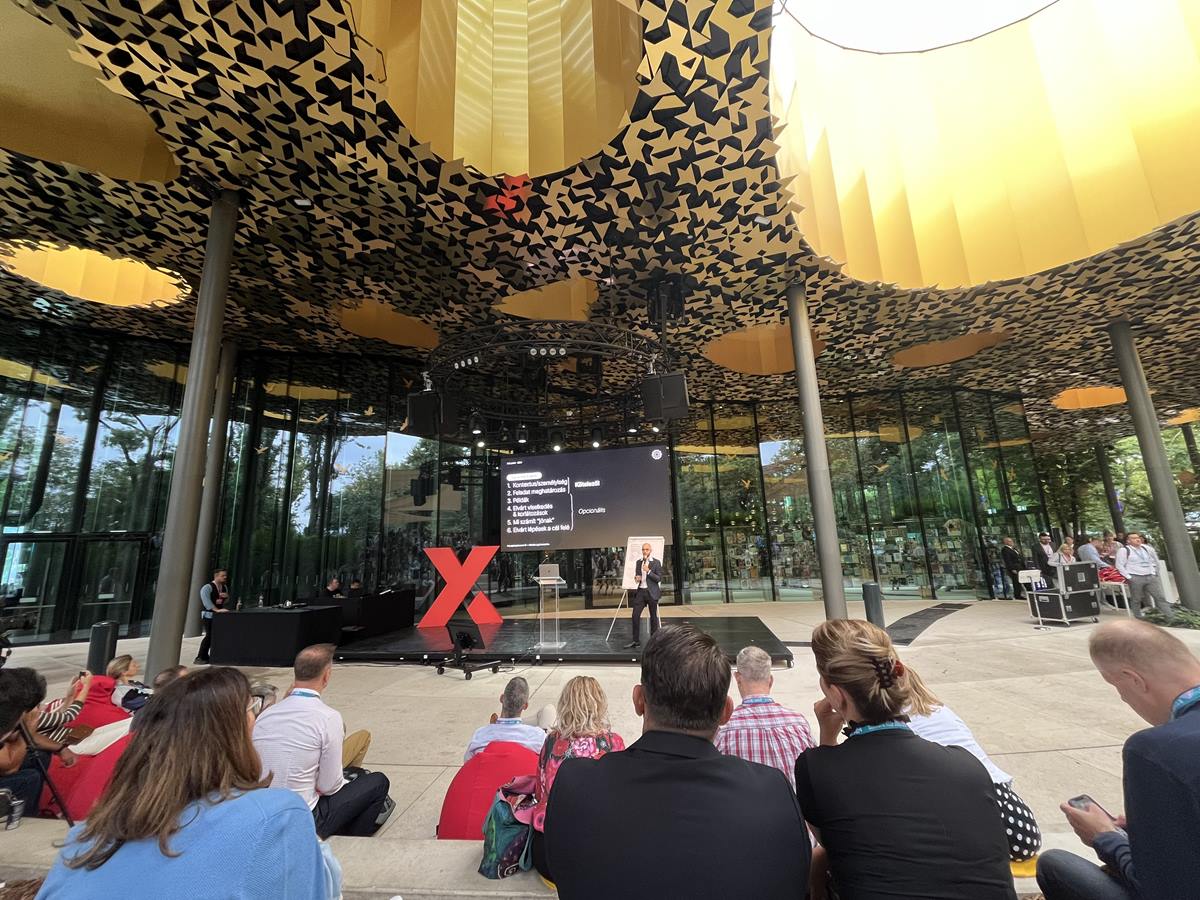
Dávid Tálas, Managing Director, Promptmaster. AI Summit Budapest 2024. Photo: Daily News Hungary
Automotive industry: China in the lead
The relationship between AI and the automotive industry was another important topic discussed on Monday afternoon. A panel discussion addressed the rise of Chinese cars in a changing market, addressing the interplay between tradition and innovation. Another discussion explored the differences between the EU and Chinese automotive industries, with leading Hungarian car dealers sharing their views on emerging trends.
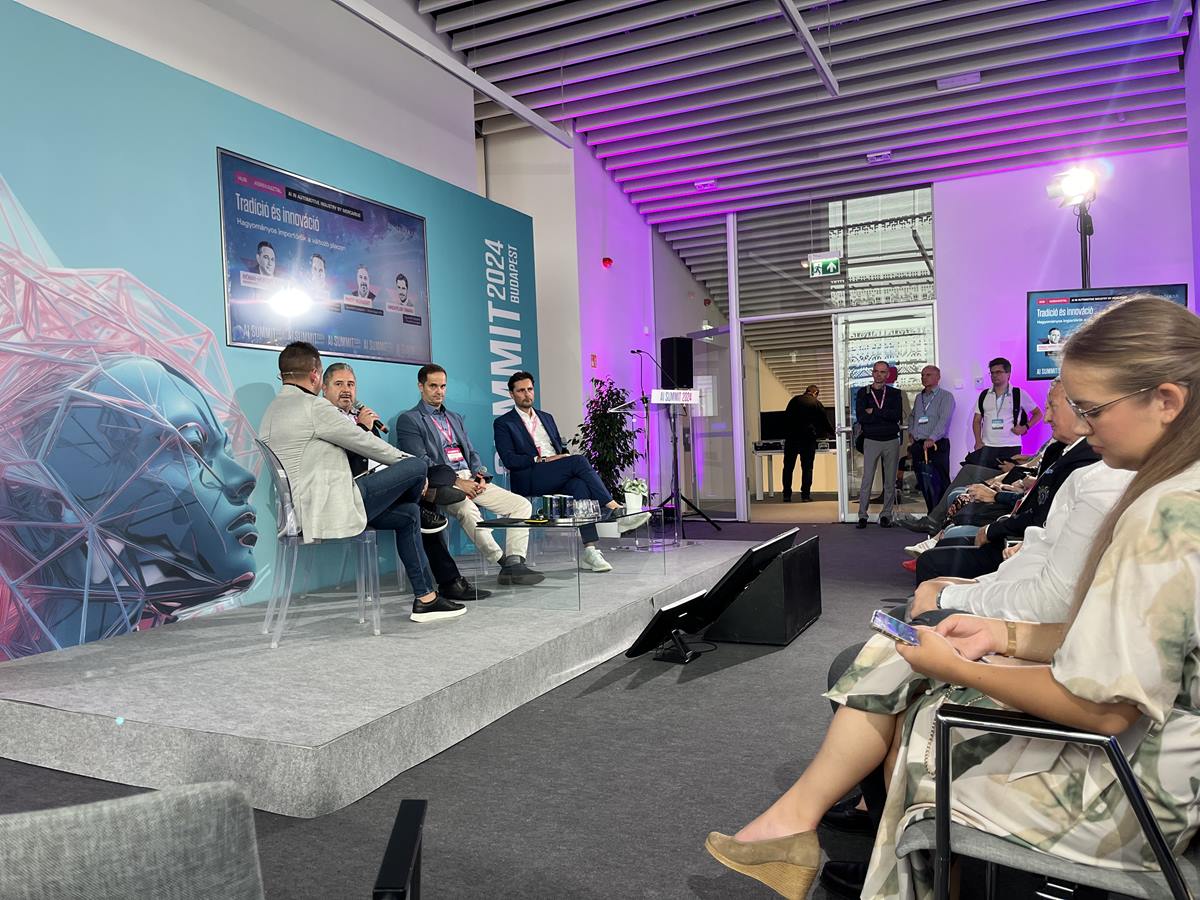
Artificial Intelligence Summit in Budapest 2024. Photo: Daily News Hungary
Conclusion
Overall, the Budapest AI Summit 2024 provided valuable insights into how artificial intelligence AI is already shaping our daily lives and helping us prepare for future challenges. The high level of interest suggests that the event has already expanded beyond its current venue. One thing is for sure: in a year, we may have a better understanding of AI’s applications in our rapidly changing world, but undoubtedly, many more questions will arise.
Read also:



